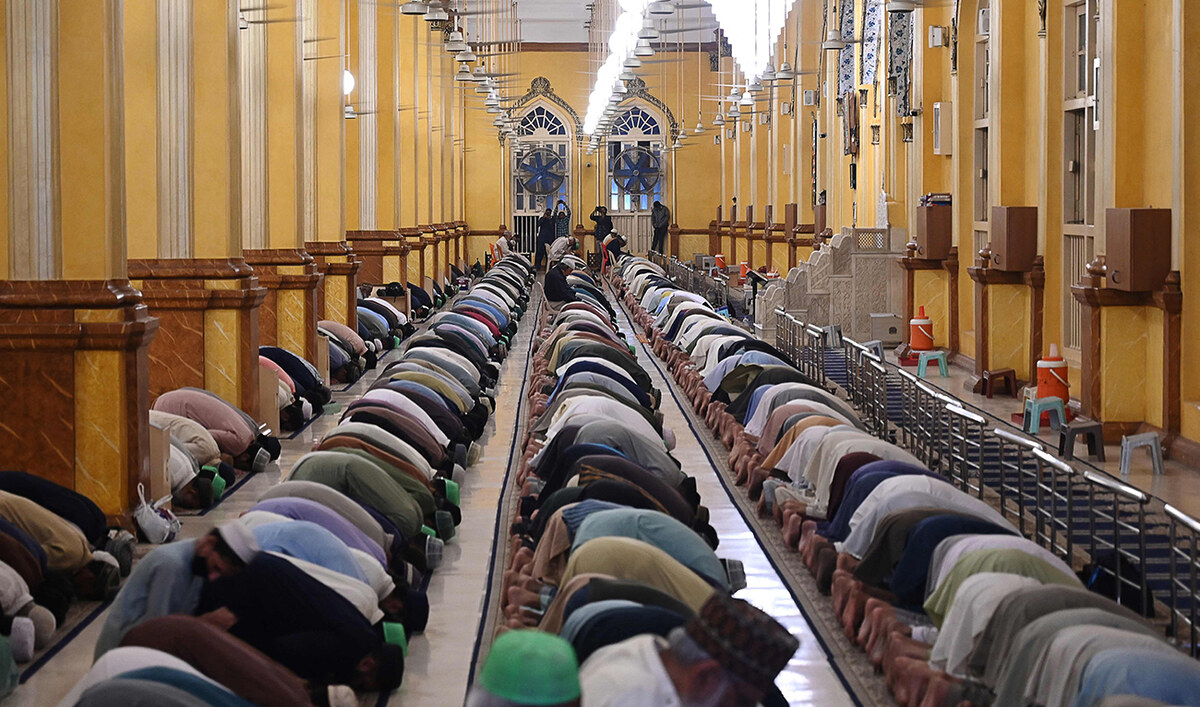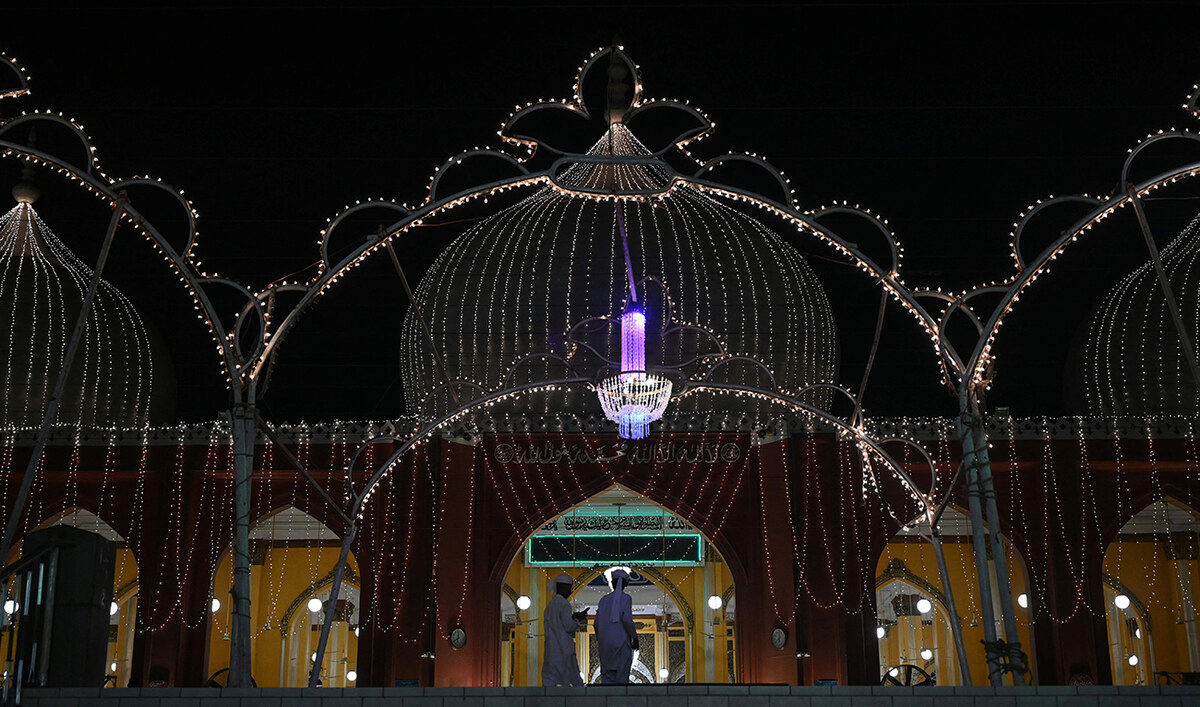ISLAMABAD: Prime Minister Shehbaz Sharif on Saturday recalled the struggles of the Palestinian and Kashmiri people while urging greater unity among Muslim states, as Pakistan prepares to begin the holy month of Ramadan from tomorrow.
PakistanŌĆÖs central moon sighting committee announced a day earlier that the Ramadan crescent was not sighted anywhere in the country, confirming that the first day of fasting would fall on Sunday.
Observed by Muslims worldwide, the month is marked by fasting from dawn to sunset, which many consider a time for spiritual reflection, self-discipline and devotion.
Fasting is also seen as a way to strengthen faith and develop empathy for the less fortunate.
ŌĆ£We are grateful to Allah for once again blessing us with the holy month of Ramadan, a time of mercy, blessings, and forgiveness,ŌĆØ the prime minister was quoted as saying by his office in a statement.

Muslims offer the first Tarawih prayers to mark the start of the Islamic holy fasting month of Ramadan at the Memon Mosque in Karachi on March 1, 2025. (AFP)
ŌĆ£We must remember our Palestinian and Kashmiri brothers and sisters who continue to suffer oppression and raise our voices against this injustice,ŌĆØ he continued. ŌĆ£This is the time to strengthen Muslim unity and promote cooperation and brotherhood.ŌĆØ
Sharif also called on Pakistanis to support financially disadvantaged segments of society during the month, which places a strong emphasis on charity and social welfare.

People arrive to offer the first Tarawih prayers to mark the start of the Islamic holy fasting month of Ramadan at the Memon Mosque in Karachi on March 1, 2025. (AFP)
Ramadan holds special significance for Muslims, as it was during one of its nights that the first verses of the QurŌĆÖan were revealed to Prophet Muhammad (PBUH).
The month is observed with increased prayer, charitable giving and community gatherings, culminating in the festival of Eid Al-Fitr.














